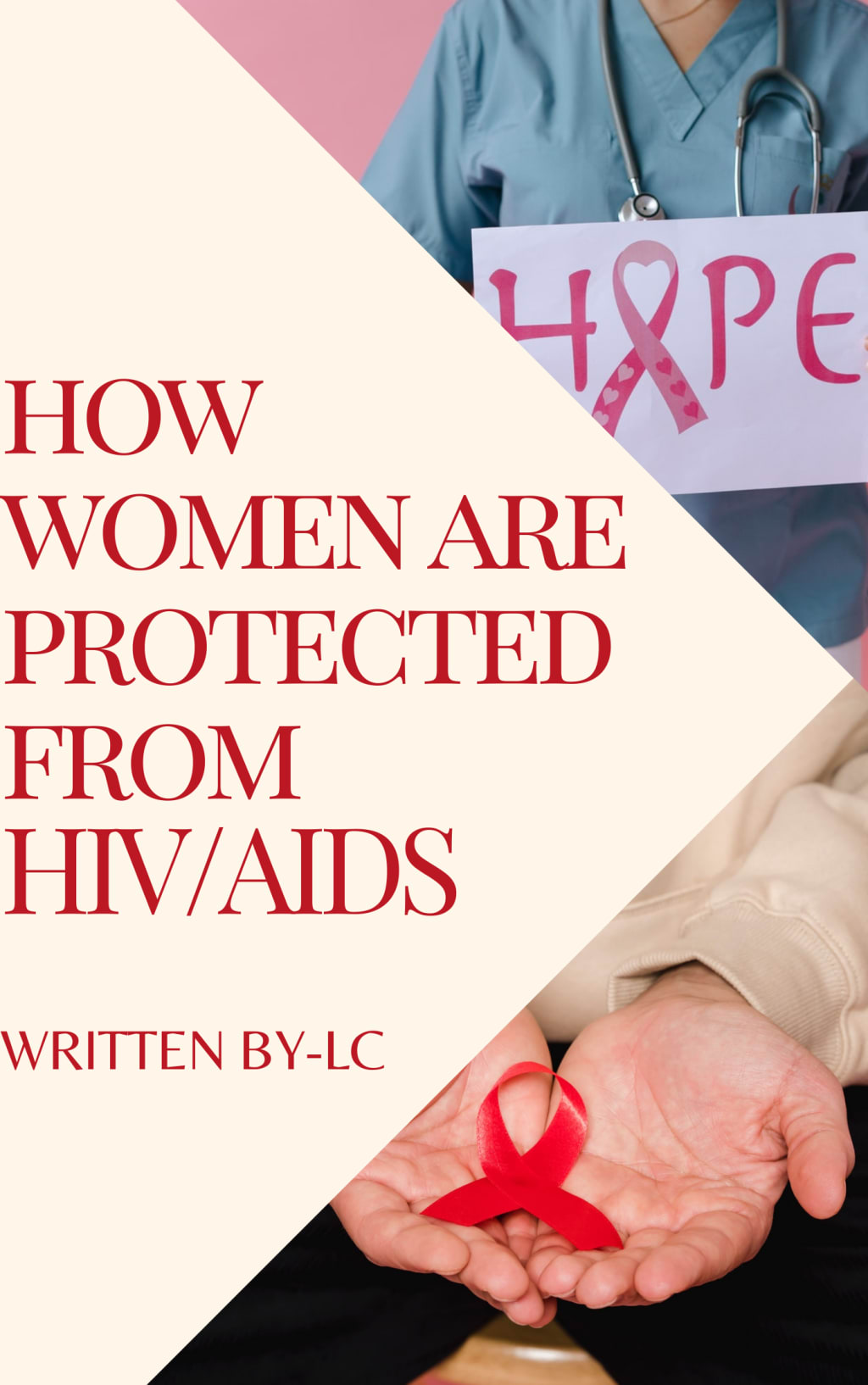how women are protected from HIV/AIDS
Protect women for HIV

Approximately 1.5 million people will be infected with HIV by 2020, with women and girls accounting for roughly half of all new infections. According to UNAIDS, 5,000 young women between the ages of 15 and 24 are infected every week.
Eastern and Southern Africa is home to more than half of the world's HIV-positive population (20.6 million out of 37.7 million). 670,000 additional infections and 310,000 AIDS-related deaths are expected in the regions by 2020.
Women who have been subjected to physical or sexual violence are 1.5 times more likely to get HIV in some areas. According to the WHO, at least 35 percent of women worldwide have been sexually or physically attacked by an intimate partner.
The World Health Organization has advised the use of the first long-acting HIV prevention medication that has been shown to reduce women's HIV risk (WHO).
Researchers at Queen's University Belfast's School of Pharmacy have been supporting the development of a new drug-releasing vaginal ring to protect women from infection with the human immunodeficiency virus for nearly two decades (HIV). It will be the first long-acting option available to women to minimize their risk of HIV transmission, marking a significant step forward in HIV prevention technology.
The monthly dapivirine ring, created by the International Partnership for Microbicides (IPM) with key research and development assistance from Queen's University Belfast and other organizations, is projected to hit the market in Sub-Saharan Africa in 2022.
HIV is a serious global disease that, if left untreated, leads to acquired immunodeficiency syndrome (AIDS). It is still a major threat to women's health and well-being around the world. According to recent predictions, 37.7 million individuals worldwide would be infected with HIV by the year 2020. Despite global advances in combating the epidemic, HIV/AIDS remains one of the leading causes of death in Sub-Saharan African women of reproductive age, who are disproportionately impacted by the disease compared to men. Since 2000, however, the incidence of new infections and AIDS-related deaths has progressively reduced, owing largely to increased access to antiretroviral medication.
ther Silicone elastomer, a flexible rubber-like substance that is easy to insert and comfortable to wear, is used to make the ring. The ring works by slowly releasing the antiretroviral medicine dapivirine into the vaginal canal over the course of 28 days. In two large-scale clinical trials, persistent delivery of the antiviral medication dapivirine was demonstrated to lower HIV infection, supporting its later market approval.
Professor Karl Malcom and Dr Peter Boyd of Queen's University Belfast's School of Pharmacy have long been involved in developing tools for women, such as various types of vaginal rings, and have worked with the non-profit International Partnership for Microbicides (IPM) to develop a range of products designed to protect women against HIV and unintended pregnancy, with a focus on the need for long-acting and female-control solutions.
"It's been a long journey, but we are absolutely happy to announce on World AIDS Day that this novel ring product will soon be available to women to help further lower HIV infection rates," said Dr Peter Boyd on behalf of the Queen's University Belfast team.
The ring was reported to reduce the overall risk of HIV-1 infection in women by 35 percent and 27 percent, respectively, in two large-scale randomized clinical trials undertaken by IPM and the Microbicide Trials Network. Further research revealed a 50 percent reduction in risk. The European Medicines Agency gave the ring a thumbs up for usage by women over the age of 18 in underdeveloped nations who are unable or unable to take the daily prophylactic medication, PrEP. The World Health Organization recommended that the dapivirine vaginal ring be included in a combined HIV prevention package for women who are at high risk of infection, and regulatory approval for the ring has been granted in Zimbabwe, with regulatory reviews in other Eastern and Southern African countries underway.
In addition, Queen's researchers are collaborating with IPM on a follow-up product that will deliver a three-month continuous release of two medications – dapivirine and levonorgestrel – to protect against sexually transmitted HIV infection and unplanned pregnancy.





Comments
There are no comments for this story
Be the first to respond and start the conversation.